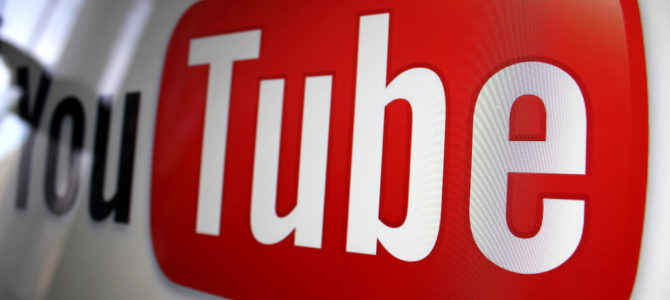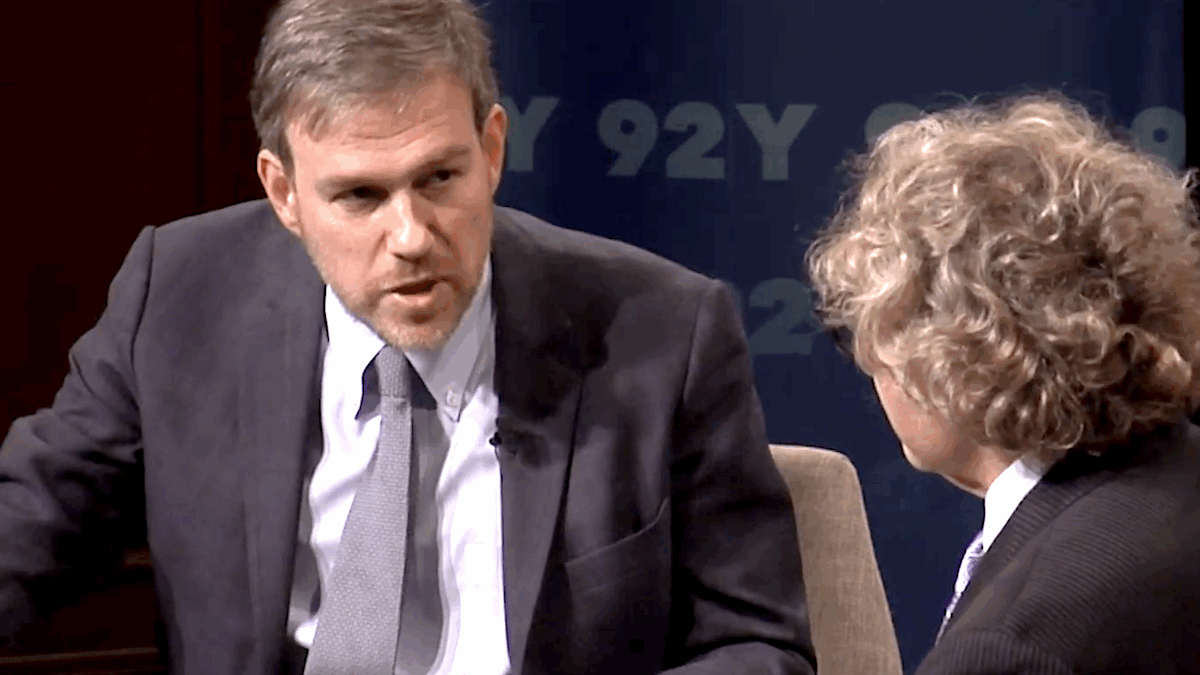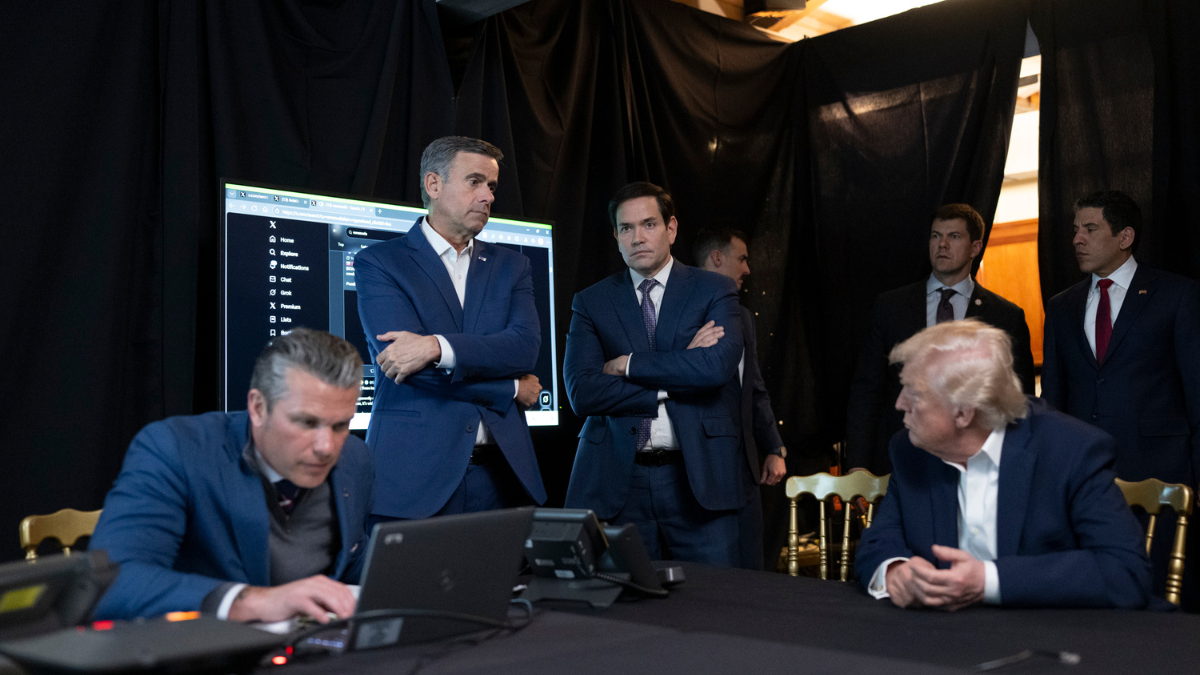
Those blackballed from social media platforms for sharing views dissenting from prevailing progressive Silicon Valley orthodoxy have to date had little recourse against the tech speech police. That is why PragerU’s newly filed suit against Google and Google-owned YouTube alleging unlawful censorship and free speech discrimination based on the educational video purveyor’s conservative political viewpoint has the potential to be groundbreaking.
The lawsuit, filed in federal court in California, details upwards of 50 PragerU educational videos that YouTube has, in PragerU’s view, unjustifiably slapped with “restricted mode” or “demonetization” filters, violating its First Amendment right to free speech. These filters limit or otherwise prevent viewers, based on characteristics like age, from consuming content deemed “inappropriate.”
Basic Conservative Ideas Are Totally ‘Inappropriate’?
The videos in question cover a wide range of subjects from national security and foreign policy, to the Second Amendment and abortion—that is, the very political speech that our courts have argued is at the core of the First Amendment. Some of the offending titles include:
- “Why Did America Fight the Korean War?” delivered by historian and Hoover Institution Senior Fellow Victor David Hanson.
- “Why America’s Military Must Be Strong,” delivered by British historian Andrew Roberts.
- “The Most Important Question About Abortion,” delivered by radio host, author, and PragerU founder Dennis Prager.
- “What Should We Do About Guns?” delivered by Fordham law professor Nicholas Johnson.
- “Gun Rights Are Women’s Rights,” delivered by journalist and author Katie Pavlich.
More arguably provocative videos touch on topics such as Islamic terrorism, campus rape, and gender identity. According the suit, “The videos do not contain any profanity, nudity, or otherwise inappropriate ‘mature’ content. The censored videos fully comply with the letter of YouTube’s Terms of Use and Community Guidelines.” Moreover, PragerU illustrates that comparable videos from non-conservative sources like BuzzFeedVideo, CNN, and “Real Time with Bill Maher” have not been subjected to such filters.
Leaving aside the inherent subjectivity for a moment, if PragerU’s content is “appropriate,” and other publishers are able to upload similar content without being penalized, then what better explanation is there for YouTube’s censorship than viewpoint discrimination? PragerU’s dealings with YouTube over its content restrictions only strengthen the validity of this question.
We Won’t Tell You Why We’re Cutting You Off
PragerU filed the suit after months of pleading with YouTube, unsuccessfully, to remove the filters, without receiving a coherent let alone consistent rationale for why its work should continue to be censored, under an arguably unfair and imperfect appeals process.
In some instances, YouTube claimed the videos were being restricted due to its automated content algorithms. In other instances, it admitted they were being flagged following “human reviews,” i.e. due to the whims of YouTube’s reviewers. In still others, videos such as “Why Isn’t Communism as Hated as Nazism?” and “What’s Holding the Arab World Back?” were restricted purportedly for discussing the topics of “hate and genocide” and “terrorism and genocide” respectfully, a standard which if applied uniformly, as PragerU hints at, would require censoring thousands of other videos.
When pressed on its restriction procedures, YouTube reportedly told PragerU it “can’t share more details about our review process, as doing so could benefit channels that do not play by the rules (those who game the system).” As PragerU summarizes it:
Google/YouTube seek to justify…[its] animus and bias [towards PragerU’s political identity and viewpoint] not by claiming that PragerU has violated YouTube’s restricted content guidelines or criteria, but by arguing that they retain unfettered discretion to censor any video content that they deem “inappropriate,” no matter how subjective, baseless, or arbitrary that decision is…For over one year, PragerU has worked patiently and cooperatively to try to resolve the censorship issues that comprise this Lawsuit. In response, Google/YouTube have provided vague, misleading, confusing, and often contradictory information that not only has prevented resolution of the issues, but constitutes further evidence and indicia that their restricted mode filtering applied to PragerU is based on Defendants’ [Google/YouTube’s] intentional discrimination and animus…
Indeed, PragerU’s suit confirms what conservatives have recognized for some time: the rules that govern banning users, taking down content, or otherwise disadvantaging posts and tweets on the basis of the sharer’s ideology or the message’s bent have been capriciously written and arguably even more capriciously applied.
That as unimpeachable a source as the video-producing nonprofit PragerU is challenging YouTube should serve as a powerful signal that conservatives and others whose views social media companies deem unworthy will no longer permit their rights to be trampled upon. This is significant regardless of the case’s outcome.
Free Speech Rights Can Apply in Private Contexts
PragerU’s argument rests on the idea that modern social media behemoths constitute the digital equivalent of today’s public square. Thus, their users must be provided the same free speech protections in cyberspace as in the town green. The suit reads in part:
The United States Supreme Court…recognized more than a half-century ago that the right to free speech guaranteed by the First Amendment to the United States Constitution can apply even on privately owned property. One of the most important places to exchange and express views is cyberspace, particularly social media, where users engage in a wide array of protected First Amendment activity on any number of diverse topics.
Where, as in the case of Google/YouTube, a private party operates as one of the largest internet forums for speech and expression in the history of the world and such forum is accessible to and freely used by the public in general, there is nothing to distinguish it from any other forum except the fact that title to the property on which the forum exists belongs to a private corporation. As the highest court in the nation has made clear, ‘[t]he more an owner, for his advantage, opens up his property for use by the public in general, the more do his rights become circumscribed by the statutory and constitutional rights of those who use it.’
Time will tell what the courts make of this argument. On the one hand, it is hard to imagine Google and YouTube wanting to disparage themselves by arguing down YouTube’s size and reach. What social media platform would not want to be known as the “digital public square”? On the other, it is easy to see YouTube asserting that as a private business, it is entitled to make whatever decisions it wants about its platform, including regulating the content disseminated on it.
In Packingham v. North Carolina, a case the Supreme Court heard earlier this year, Justice Anthony Kennedy stated of platforms like Twitter that, “Their utility and the extent of their coverage are greater than the communication you could have ever had, even in the paradigm of public square.” Justice Ruth Bader Ginsburg added that those being restricted from using such platforms “are being cut off from a very large part of the marketplace of ideas. And the First Amendment includes not only the right to speak, but the right to receive information.”
The particulars of that case illustrate the thorny nature of this issue. It is also important to note that the court was ruling on a state law, not the conduct of a social media company. Related legal efforts, for example challenging federal law allegedly used to enable social media companies to violate First Amendment rights, have failed.
Don’t Sacrifice the Market to Save It
One remedy some conservatives have been coalescing around involves treating social media platforms as government-regulated public utilities. The arguments have merit. But getting the government involved is dubious on both free market grounds and the practical slippery slope such regulation may create, with broader political and economic implications. “Sacrificing the free market to save the free market” is not sound, and we can little afford to set the country down a path of tech hyper-regulation that kills one of our few growth industries.
To the degree to which there is still a relatively free market in technology, there are plenty of measures we can take to challenge Silicon Valley’s speech muzzlers. Unlike the Left, which knows how to organize and strategically execute its political campaigns, to date conservatives have not committed to such a concerted effort to protect free speech in cyberspace. We should. These efforts would have to encompass extensive, highly coordinated and unceasing:
- Public relations campaigns in favor of free speech on technology platforms;
- Educational initiatives to instill a dedicated belief in free speech in both media and academia, something evidently sorely lacking in the present “hate speech equals violence justifies physical violence” paradigm;
- Lobbying technology companies on behalf of the interests of those discriminated against;
- Lawfare, which if not precedent-setting at least forces technology companies to grapple with our complaints and puts their positions on record;
- Protests including boycotts, viral messaging campaigns, and other principled acts to drive public notice to the issue and force social media companies to respond;
- Building alternative platforms.
While enjoying a so-called first mover advantage, powerful lobbying efforts, and robust network effects that make their adapters unlikely to leave soon, major social media companies are not invincible. Lest we forget, financial services firms that appeared indestructible disappeared in the course of a few short weeks during the last financial crisis. Empires rise and fall for all sorts of reasons, economic, cultural, and political.
PragerU’s efforts are essential, and may serve as the vanguard of a successful lawfare effort. But while legal action is necessary, it is by no means a sufficient and sure safeguard of our rights. As we have seen time and time again, judges routinely permit our liberties to erode, and sometimes actively assist. Preserving free speech, like all of our cherished freedoms, requires constant vigilance and persistent defense.








